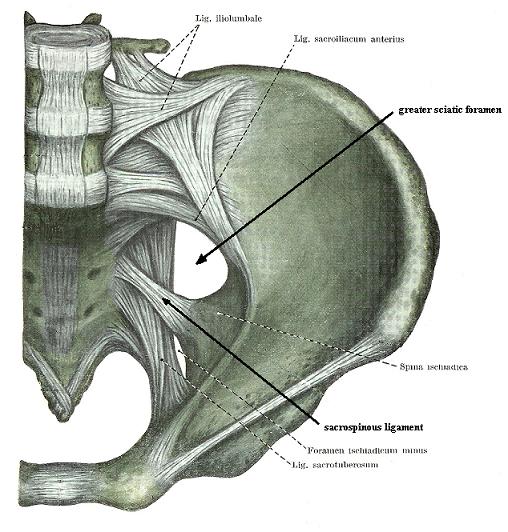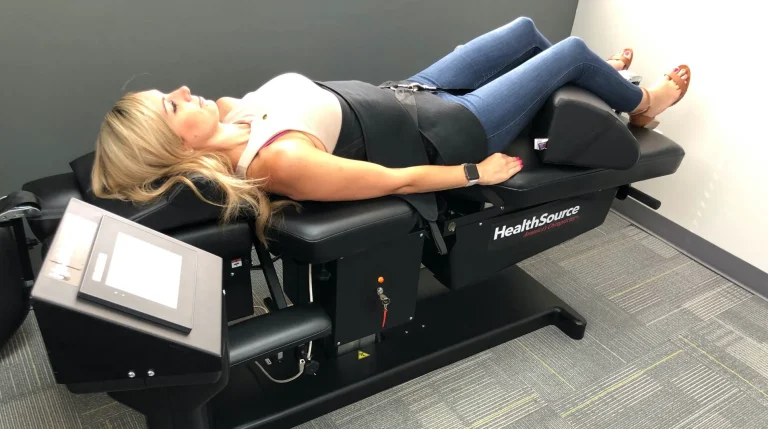Can weight gain cause sciatica: Connecting the Dots
Introduction
Imagine your body as a well-coordinated team, where each part plays a crucial role. Now, let’s delve into something many of us wonder about: Can weight gain cause sciatica? Sciatica is like a messenger of discomfort that travels along your legs, often starting from your lower back.
As we embark on this exploration, we’ll uncover the intricate connection between gaining weight and dealing with sciatica. Additionally, we’ll reveal a story that goes beyond the surface. Join us on a journey where we untangle the details, and discover how carrying extra weight can influence the way sciatica manifests in our lives.
A Brief Overview of Sciatica
Sciatica isn’t merely a pain in the back; it’s a journey of discomfort that radiates along the sciatic nerve, affecting the hips and legs. Alongside herniated discs, spinal stenosis, and muscle spasms, weight gain becomes a noteworthy player in this intricate scenario. Moreover, understanding the intricacies of sciatica involves recognizing not only its symptoms but also the underlying causes that contribute to this challenging condition.
The Weighty Connection and Risk Factors
Recent studies highlight a clear link between weight gain and an increased risk of sciatica symptoms. Excess body weight adds stress to the spine, potentially compressing the sciatic nerve. Beyond weight gain, there are other risk factors for sciatica, such as age, occupation (especially jobs involving heavy lifting or prolonged sitting), and underlying conditions like diabetes. Albeit, weight gain is a significant factor, acknowledging the various contributors to sciatica ensures a comprehensive understanding of its complexity.
Statistics on Weight Gain and Sciatica
According to research from the National Institute of Neurological Disorders and Stroke (NINDS), individuals categorized as overweight or obese are more likely to experience sciatica symptoms.
Managing weight emerges as a crucial factor in reducing the impact of sciatica on one’s life. Whether we consider statistics or personal anecdotes, the correlation between weight gain and sciatica becomes increasingly evident.
Mechanisms at Play and Consequences
Understanding how weight gain causes sciatica involves delving into spinal biomechanics. The added weight stresses spinal discs, possibly leading to herniation and inflammation, thereby aggravating the irritation of the sciatic nerve. Left untreated, sciatica can result in chronic pain, reduced mobility, and, in severe cases, nerve damage. Consequently, recognizing these mechanisms at play becomes imperative for individuals seeking relief from sciatica.
Impact on Lifestyle

Weight gain often accompanies a sedentary lifestyle, making sciatica symptoms worse. Moreover, lack of regular physical activity and poor posture can compound the effects of excess weight, creating a cycle of discomfort for individuals with sciatica. Therefore, addressing lifestyle factors concurrently with weight management forms a holistic approach to sciatica care.
Addressing Weight-Related Sciatica
Transitioning to the topic of addressing weight-related sciatica, weight management becomes a crucial aspect of sciatica care. A balanced diet, regular exercise, and lifestyle modifications not only aid in weight loss but also alleviate strain on the spine, potentially offering relief to sciatica patients. Moreover, adopting a multifaceted approach that considers both physical and lifestyle aspects can significantly impact the course of sciatica.
How Medcareline Can Help
Navigating the complexities of sciatica requires reliable information and guidance. At Medcareline, we understand the challenges faced by sciatica patients. Our informational posts, meticulously tailored to empower individuals with knowledge about managing sciatic pain, comprehensively cover risk factors, including the impact of weight gain causing sciatica. Explore our resources to gain insights into holistic well-being and embark on a journey towards sciatic pain relief.
Conclusion
As we navigate the intricate landscape of sciatica and its intricate ties to weight gain, the significance of holistic well-being becomes apparent. The question remains: Can proactive weight management be the key to unlocking a life unburdened by the grip of sciatica? Embracing a comprehensive approach that considers both spinal health and overall wellness holds the potential to redefine the journey toward sciatic pain relief. Furthermore, untreated sciatica can have consequences, so let’s ask ourselves: How can we prioritize our health to prevent the lingering effects of untreated sciatica? In the pursuit of answers, considering the role of weight becomes a pivotal aspect of the narrative.
Frequently Asked Questions
Q: Is there a specific target weight loss percentage that can significantly impact sciatica symptoms?
A: While individual responses vary, studies suggest that even a modest weight loss of 5-10% can have positive effects on sciatica symptoms by reducing spinal compression.
Q: Are certain exercises more effective for weight loss and sciatica relief?
A: Low-impact exercises like swimming, walking, and yoga can be beneficial for weight loss and may also help relieve sciatica symptoms by promoting flexibility and strength.
Q: Can weight loss prevent the recurrence of sciatica after successful treatment?
A: Maintaining a healthy weight is considered a key factor in preventing the recurrence of sciatica. It helps reduce the stress on the spine and minimizes the risk of additional nerve compression.
Q: How does excess weight contribute to inflammation, and how does it affect sciatica?
A: Weight gain can lead to chronic inflammation which may cause sciatica symptoms. Inflammation can further irritate the sciatic nerve, intensifying pain and discomfort.
Q: Are there specific dietary changes that can aid in weight loss and sciatica management?
A: A balanced diet rich in fruits, vegetables, lean proteins, and whole grains can support weight loss and overall health. Additionally, anti-inflammatory foods may help mitigate sciatica-related inflammation.
Q: Can weight loss be effective in relieving sciatica caused by spinal stenosis or herniated discs?
A: Yes, weight loss can be effective in relieving sciatica caused by conditions like spinal stenosis or herniated discs. Reduced weight lessens the pressure on the affected spinal structures, potentially alleviating symptoms.
Q: Is there a specific timeframe within which weight loss may show positive effects on sciatica symptoms?
A: Individual responses vary, but some individuals may experience relief within a few weeks to months of consistent weight loss efforts. However, it’s essential to maintain a healthy weight for long-term benefits.
Q: Can weight loss impact the need for surgical interventions in cases of severe sciatica?
A: In some cases, significant weight loss may reduce the severity of sciatica symptoms, potentially lessening the need for surgical interventions. However, the decision for surgery is highly individual and should be discussed with a healthcare professional.
Q: Are there specific weight loss programs recommended for individuals with sciatica?
A: Tailoring weight loss programs to individual needs is crucial. Programs that combine dietary changes with regular, low-impact exercises are generally recommended. Consult with a healthcare professional or a registered dietitian for personalized advice.
References
- Shiri R, Karppinen J, Leino-Arjas P, Solovieva S, Viikari-Juntura E. The association between obesity and low back pain: a meta-analysis. Am J Epidemiol. 2010 Jan 15;171(2):135-54. doi: 10.1093/aje/kwp356. PMID: 20007994.
- National Institute of Neurological Disorders and Stroke (NINDS). (2021). Sciatica Information Page. Retrieved from https://www.ninds.nih.gov/Disorders/All-Disorders/Sciatica-Information-Page
- Dario AB, Ferreira ML, Refshauge KM, et al. The relationship between obesity, low back pain, and lumbar disc degeneration when genetics and the environment are considered: a systematic review of twin studies. Spine J. 2015 Feb 1;15(2):110-21. doi: 10.1016/j.spinee.2014.07.012. Epub 2014 Jul 18. PMID: 25046863.
- Rubinstein SM, Terwee CB, Assendelft WJ, de Boer MR, van Tulder MW. Spinal manipulative therapy for acute low-back pain. Cochrane Database Syst Rev. 2012 Sep 12;2012(9):CD008880. doi: 10.1002/14651858.CD008880.pub2. PMID: 22972127; PMCID: PMC6470585.
- Zhang S, Xu YQ, Shen P, Chen D, He SL, Wang X. Relationship between overweight or obesity and lumbar disc diseases: a systematic review and meta-analysis. J Orthop Surg Res. 2018 Feb 13;13(1):42. doi: 10.1186/s13018-018-0731-3. PMID: 29439784; PMCID: PMC5813290.
- Manchikanti L, Singh V, Falco FJ, et al. Epidemiology of low back pain in adults. Neuromodulation. 2014 Oct;17 Suppl 2:3-10. doi: 10.1111/ner.12018. Epub 2014 Mar 18. PMID: 24641565.







